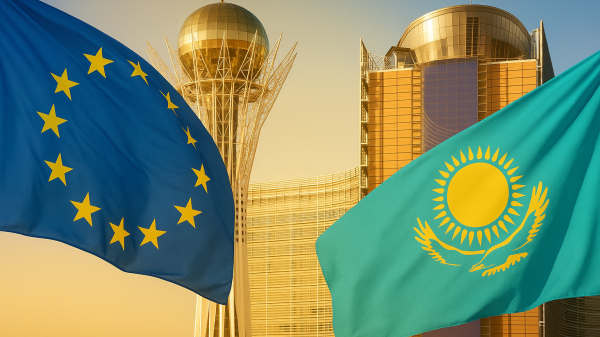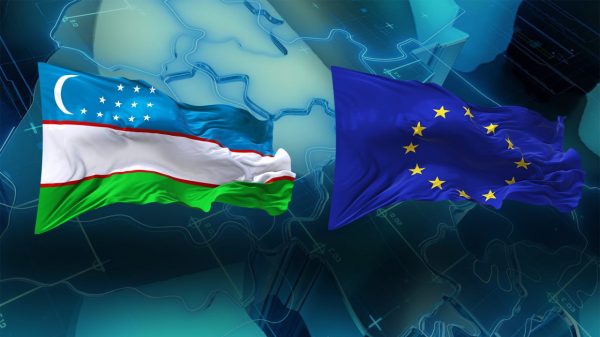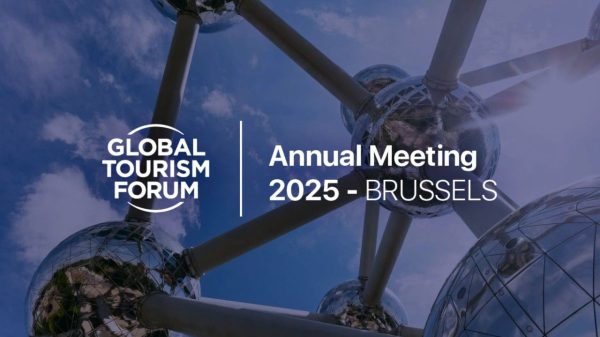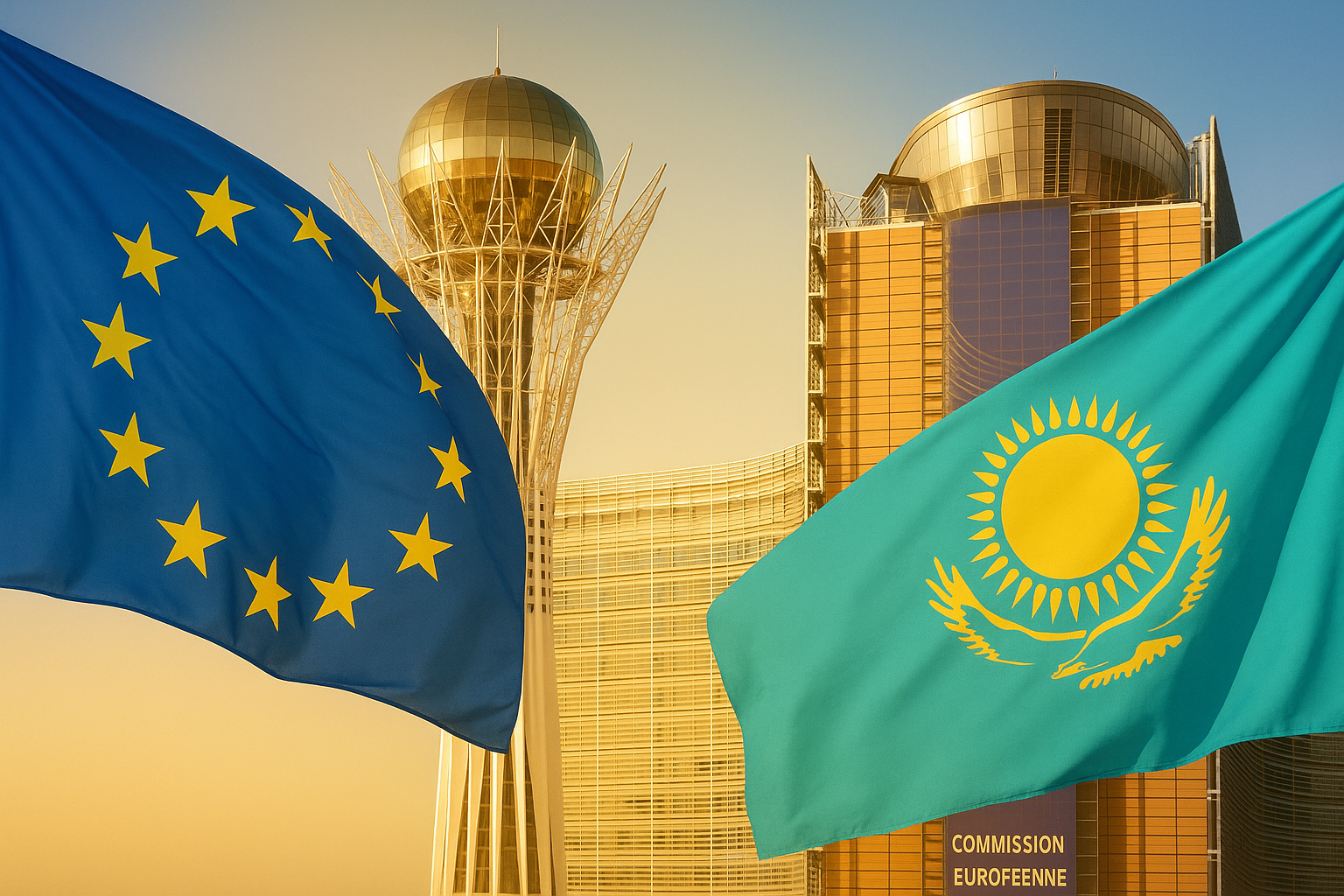Bridging Continents, Transforming Futures — Ten Years of the EU–Kazakhstan Strategic Cooperation Framework
As Kazakhstan celebrates its National Day on 25 October, it also marks a milestone of deep geopolitical and economic significance — ten years since the signing of the Strategic Cooperation Agreement with the European Union, formally embodied in the Enhanced Partnership and Cooperation Agreement (EPCA).
For Brussels policymakers and EU member state diplomats, Kazakhstan’s steady rise as a reliable, reform-minded and forward-looking partner stands as one of the quiet success stories of the EU’s external action policy. Over the past decade, what began as a pragmatic engagement has matured into a structured and strategic alliance, encompassing trade, energy, green transition, connectivity, and multilateral governance.
A partnership rooted in strategy, not convenience
When the EPCA was signed in Astana in December 2015, few anticipated how central Kazakhstan would become to the EU’s evolving strategic calculus. Encompassing 29 policy areas, the Agreement was designed to move the relationship “beyond energy” — embedding cooperation on rule of law, sustainable development, investment, science and technology, and human rights.
Although the Agreement only entered into force in March 2020 after ratification by all EU Member States, it has since become the cornerstone of Brussels’ engagement with Central Asia. For the European Commission and the European External Action Service (EEAS), the EPCA provided the institutional architecture for an expanding agenda — from trade facilitation to transport corridors, and from clean energy to higher education.
High-level political dialogue — through annual Cooperation Councils, sectoral sub-committees, and Parliamentary Cooperation Committees — now ensures that the partnership is not merely declarative but operational.
“Kazakhstan has become a vital partner in the EU’s external policy matrix — stable, open to dialogue, and strategically located at the crossroads of Europe and Asia,”
notes a senior EEAS official in Brussels.
“Our cooperation today reflects mutual trust, practical results, and shared long-term interests.”
Trade, investment and energy: building an interdependent future
The European Union remains Kazakhstan’s largest trading partner and top investor, accounting for nearly 48 % of total FDI inflows and around 40 % of its foreign trade. By late 2024, bilateral trade reached USD 48.7 billion, a 16.9 % increase year-on-year, underscoring the resilience and depth of the partnership.
Over 3,000 European-affiliated enterprises now operate in Kazakhstan, spanning energy, manufacturing, finance, logistics, and digital technology — from Shell and TotalEnergies to Siemens, Airbus and Schneider Electric.
The EPCA’s chapters on trade facilitation, investment protection, intellectual property, and regulatory convergence have been instrumental in attracting this wave of investment, giving European firms confidence in Kazakhstan’s reform trajectory and legal environment.
Equally transformative has been Kazakhstan’s evolution in the energy partnership. Traditionally a major supplier of oil, gas and uranium, Kazakhstan is now emerging as a key partner in the EU’s green industrial transition, particularly through renewable energy, hydrogen production, and critical raw materials.
The Raw Materials, Batteries and Hydrogen Agenda
Signed in Brussels in November 2022, the EU–Kazakhstan Strategic Partnership on Sustainable Raw Materials, Batteries and Renewable Hydrogen exemplifies how both sides are re-shaping the resource narrative into a climate-conscious industrial partnership.
Under this agreement, a detailed roadmap adopted in 2023 provides for joint projects in geological mapping, refining, recycling, value-chain integration, and research cooperation. Co-funded by the EU, EBRD, and private investors, early-stage ventures are already under development in rare earths and hydrogen infrastructure.
For the EU, this partnership aligns perfectly with the European Critical Raw Materials Act and Global Gateway strategy — enhancing supply security and reducing strategic dependence on single-source markets. For Kazakhstan, it represents industrial diversification, new technology transfer, and access to the single market’s green investment architecture.
“Our cooperation on critical raw materials is not about extraction — it is about innovation, value-creation, and shared standards,”
said EU Commissioner for Energy Kadri Simson at the 2024 EU–Kazakhstan Investment Forum in Brussels.
“Kazakhstan has become central to Europe’s clean-energy ecosystem.”
Connectivity: The Middle Corridor comes of age
The war in Ukraine and the reshaping of global trade routes have propelled Kazakhstan’s role in Eurasian connectivity to the forefront of EU policy. The Trans-Caspian International Transport Route (TITR) — known as the Middle Corridor — is now a strategic artery linking Asia to Europe through Kazakhstan, the Caspian Sea, the South Caucasus and onward to the Black Sea.
Under the EU’s Global Gateway Investment Package for Central Asia, announced in Samarkand in April 2025, more than €12 billion has been earmarked for corridor modernization, digital customs systems, green logistics, and border interoperability — much of it channelled through Kazakhstan.
The European Commission’s DG MOVE, together with Kazakh partners, is coordinating new standards alignment with TEN-T corridors, ensuring smoother trade flow and enhanced multimodal connectivity. The EU’s support for port upgrades at Aktau and Kuryk further underscores Kazakhstan’s position as the keystone in the EU’s east-west diversification strategy.
Governance, reforms and values: dialogue over distance
Beyond economics, the EU–Kazakhstan partnership has retained a strong normative dimension — dialogue on governance, rule of law, and human rights. The EU–Kazakhstan Human Rights Dialogue, held annually since 2008, continues to provide an open platform for engagement between institutions, civil society and international partners.
The EU Delegation in Astana and the Council of Europe are also expanding technical assistance programmes in judicial reform, anti-corruption policy, and youth civic engagement — areas supported by both the European Parliament and the Commission’s DG NEAR.
While progress is incremental, the dialogue’s continuation underscores the EU’s belief in engagement rather than isolation. Kazakhstan’s constitutional reforms since 2022 — including decentralisation, the introduction of a Constitutional Court, and steps toward political pluralism — have been noted positively in Brussels.
Looking forward: the next decade of EU–Kazakhstan cooperation
The past ten years have solidified a foundation of mutual trust and shared interest. The next decade should focus on implementation and innovation.
Key priorities for Brussels policymakers and Astana’s reformers alike include:
- Deepening the green industrial partnership — scaling joint ventures in hydrogen, battery production, and circular-economy projects under the Global Gateway and EBRD frameworks.
- Advancing connectivity — harmonising customs, logistics and digital documentation along the Middle Corridor to make it a viable alternative to northern routes.
- Expanding educational and research exchanges — through Horizon Europe, Erasmus+, and the European Institute of Innovation and Technology.
- Embedding ESG and transparency standards — ensuring that rapid investment in extractive industries is accompanied by governance safeguards and accountability.
- Enhancing parliamentary and civil-society engagement — deepening the democratic layer of cooperation.
A mature partnership with global relevance
Kazakhstan’s steady balancing act — maintaining its multi-vector diplomacy while deepening ties with Europe — has become a model for pragmatic foreign policy in an era of multipolar uncertainty.
For the European Union, the partnership with Kazakhstan illustrates how Brussels can align values, interests, and strategic autonomy through sustained dialogue and credible investment.
On this 25 October 2025, Kazakhstan’s National Day, Brussels salutes not only a valued partner but also a trusted friend in Central Asia — one whose stability, openness and ambition mirror Europe’s own aspirations for a peaceful, connected and sustainable Eurasia.














































